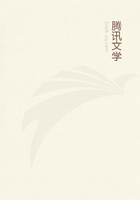
第8章 CHAPTER V(1)
This physical loathing for alcohol I have never got over.But Ihave conquered it.To this day I conquer it every time I take a drink.The palate never ceases to rebel,and the palate can be trusted to know what is good for the body.But men do not drink for the effect alcohol produces on the body.What they drink for is the brain-effect;and if it must come through the body,so much the worse for the body.
And yet,despite my physical loathing for alcohol,the brightest spots in my child life were the saloons.Sitting on the heavy potato wagons,wrapped in fog,feet stinging from inactivity,the horses plodding slowly along the deep road through the sandhills,one bright vision made the way never too long.The bright vision was the saloon at Colma,where my father,or whoever drove,always got out to get a drink.And I got out to warm by the great stove and get a soda cracker.Just one soda cracker,but a fabulous luxury.Saloons were good for something.Back behind the plodding horses,I would take an hour in consuming that one cracker.I took the smallest nibbles,never losing a crumb,and chewed the nibble till it became the thinnest and most delectable of pastes.I never voluntarily swallowed this paste.I just tasted it,and went on tasting it,turning it over with my tongue,spreading it on the inside of this cheek,then on the inside of the other cheek,until,at the end,it eluded me and in tiny drops and oozelets,slipped and dribbled down my throat.Horace Fletcher had nothing on me when it came to soda crackers.
I liked saloons.Especially I liked the San Francisco saloons.
They had the most delicious dainties for the taking--strange breads and crackers,cheeses,sausages,sardines--wonderful foods that I never saw on our meagre home-table.And once,I remember,a barkeeper mixed me a sweet temperance drink of syrup and soda-water.My father did not pay for it.It was the barkeeper's treat,and he became my ideal of a good,kind man.I dreamed day-dreams of him for years.Although I was seven years old at the time,I can see him now with undiminished clearness,though Inever laid eyes on him but that one time.The saloon was south of Market Street in San Francisco.It stood on the west side of the street.As you entered,the bar was on the left.On the right,against the wall,was the free lunch counter.It was a long,narrow room,and at the rear,beyond the beer kegs on tap,were small,round tables and chairs.The barkeeper was blue-eyed,and had fair,silky hair peeping out from under a black silk skull-cap.I remember he wore a brown Cardigan jacket,and I know precisely the spot,in the midst of the array of bottles,from which he took the bottle of red-coloured syrup.He and my father talked long,and I sipped my sweet drink and worshipped him.And for years afterward I worshipped the memory of him.
Despite my two disastrous experiences,here was John Barleycorn,prevalent and accessible everywhere in the community,luring and drawing me.Here were connotations of the saloon making deep indentations in a child's mind.Here was a child,forming its first judgments of the world,finding the saloon a delightful and desirable place.Stores,nor public buildings,nor all the dwellings of men ever opened their doors to me and let me warm by their fires or permitted me to eat the food of the gods from narrow shelves against the wall.Their doors were ever closed to me;the saloon's doors were ever open.And always and everywhere I found saloons,on highway and byway,up narrow alleys and on busy thoroughfares,bright-lighted and cheerful,warm in winter,and in summer dark and cool.Yes,the saloon was a mighty fine place,and it was more than that.
By the time I was ten years old,my family had abandoned ranching and gone to live in the city.And here,at ten,I began on the streets as a newsboy.One of the reasons for this was that we needed the money.Another reason was that I needed the exercise.
I had found my way to the free public library,and was reading myself into nervous prostration.On the poor ranches on which Ihad lived there had been no books.In ways truly miraculous,Ihad been lent four books,marvellous books,and them I had devoured.One was the life of Garfield;the second,Paul du Chaillu's African travels;the third,a novel by Ouida with the last forty pages missing;and the fourth,Irving's "Alhambra."This last had been lent me by a school-teacher.I was not a forward child.Unlike Oliver Twist,I was incapable of asking for more.When I returned the "Alhambra"to the teacher I hoped she would lend me another book.And because she did not--most likely she deemed me unappreciative--I cried all the way home on the three-mile tramp from the school to the ranch.I waited and yearned for her to lend me another book.Scores of times I nerved myself almost to the point of asking her,but never quite reached the necessary pitch of effrontery.